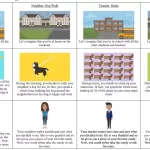
The year 2023 has witnessed an unprecedented surge in retractions of research papers, surpassing 10,000 and setting a new annual record, as publishers grapple with the fallout from counterfeit studies and peer-review misconduct. A Nature analysis has pinpointed nations like Saudi Arabia, Pakistan, Russia, and China as having the highest retraction rates over the past two decades among major research-producing countries.
Hindawi, a London-based subsidiary of publisher Wiley, accounted for the bulk of retractions in 2023, with over 8,000 articles withdrawn due to concerns about compromised peer review processes and systematic manipulation. Notably, these retractions were predominantly from special issues, often exploited by scammers to publish low-quality or fraudulent papers rapidly.

Wiley’s Response and Impact: Wiley announced the cessation of the Hindawi brand, attributing revenue losses of $35-40 million this fiscal year to the ongoing issues. The publisher emphasized implementing stringent measures, including revoking roles of ‘bad actors,’ enhancing research integrity oversight, and pursuing legal avenues to share data about these individuals with other publishers and databases.
Citations and Concerns: Despite being largely sham articles, retracted Hindawi papers were collectively cited over 35,000 times, exposing the potential influence of problematic publications. The surge in retractions has outpaced scientific paper growth, surpassing a total of 50,000 retractions globally.
Rising Retraction Rates and Preventive Measures: Nature’s analysis revealed a more than threefold increase in retraction rates over the past decade, surpassing 0.2% in 2022. Countries like Saudi Arabia and China exhibited high retraction rates per 10,000 articles, with the Institute of Electrical and Electronics Engineers (IEEE) retracting over 10,000 conference papers in the past two decades.

Preventive measures by organizations like IEEE aimed at identifying and rectifying papers failing to meet publication standards have faced scrutiny, with instances of questionable content in several IEEE publications surfacing. The IEEE responded, retracting a limited number of papers found to breach publication standards.
The Concern of Unreported Retractable Work: Despite the substantial number of retractions, integrity analysts highlight the prevalence of ‘paper mills’ producing hundreds of thousands of bogus papers. These fraudulent works infiltrate review articles and mainstream literature, impacting scientific integrity even if they remain unread.
The surging rate of retractions in 2023 underscores the persistent challenge of maintaining research integrity in academic publishing, urging for heightened vigilance and enhanced measures to combat fraudulent practices within the scientific community.










